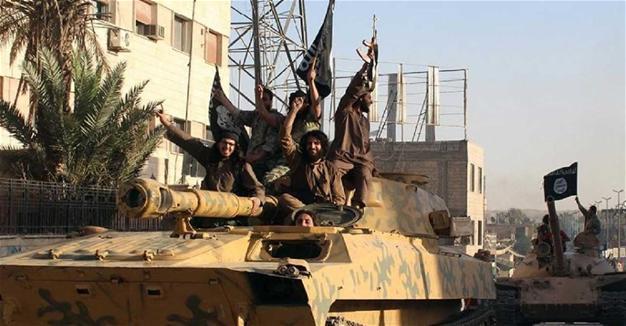ISIL now controls less than seven percent of Iraq, military says
BAGHDAD

The Islamic State of Iraq and the Levant (ISIL) now controls less than seven percent of Iraq, down from the 40 percent it held nearly three years ago, a military spokesman said April 11.
Iraqi forces backed by U.S.-led air strikes and other support are now battling ISIL inside second city Mosul, after retaking much of the other territory the jihadists had seized.
“Daesh controlled 40 percent of Iraqi land” in 2014, Brigadier General Yahya Rasool told reporters, using an Arabic acronym for ISIL, AFP reported.
“As of March 31 [this year], they only held 6.8 percent of Iraqi territory,” said Rasool, the spokesman of the Joint Operations Command coordinating the anti-jihadist effort.
Various members of the forces, Iraqi and foreign, battling the jihadists have disagreed in the past on figures about control of territory, but ISIL has been losing ground steadily for close to two years.
The most brutal organization in modern jihad shocked the world when it took over Mosul in June 2014 and then swept across much of the country’s Sunni Arab heartland.
Iraqi forces with the backing of the U.S.-led coalition - which has thousands of military personnel deployed in Iraq and carries out daily air strikes - launched a major offensive to retake Mosul in October 2016.
They retook control of the eastern side of the city, which is divided by the Tigris River, in January and have since mid-February been battling die-hard jihadists holed up in their last west Mosul redoubts.
(HH) Half of Iraqi families at risk of hunger after years of war, says UN
More than half of Iraqi families are at risk of going hungry, a U.N. agency said on April 10, warning of “unprecedented levels of vulnerability” faced by the population due to years of conflict.
Most families in the country will no longer be able to feed themselves if basic food prices increase or fighting escalates, according to the World Food Programme (WFP).
“They can’t absorb any more shocks,” said WFP spokeswoman Dina El-Kassaby.
Conflict and instability have stifled food production in Iraq, according to the United Nations. Farmers face shortages of seeds and fertilizers and many have been forced to abandon their land or sell their animals.
A study by WFP and the Iraqi government found that 2.5 percent of the population, or more than 800,000 people, are going to bed hungry every night.
There are concerns this figure could increase, as two thirds of internally displaced people and more than half of Iraqis living in their homes have barely enough to feed themselves, said El-Kassaby.
Almost 75 percent of Iraqi children under the age of 15 are working to help their families put food on the table instead of going to school, WFP said.
“Anything that changes the status quo of those families that are on the verge of food insecurity would push them over the edge,” El-Kassaby told the Thomson Reuters Foundation by phone.
The study, which El-Kassaby said was the most comprehensive on food needs ever conducted in Iraq, was based on surveys of more than 20,000 families in urban and rural areas across the country.
It was carried out before the launch of a U.S.-backed campaign to dislodge ISIL from the northern city of Mosul and did not capture the situation of those fleeing fighting there, WFP said.
 The Islamic State of Iraq and the Levant (ISIL) now controls less than seven percent of Iraq, down from the 40 percent it held nearly three years ago, a military spokesman said April 11.
The Islamic State of Iraq and the Levant (ISIL) now controls less than seven percent of Iraq, down from the 40 percent it held nearly three years ago, a military spokesman said April 11.